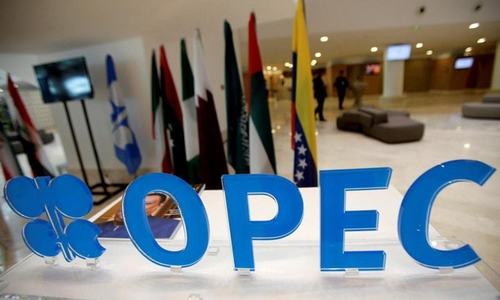LONDON: Iran, hit by year-long US oil sanctions and recent protests over domestic fuel price hikes, retains a “strong voice” in the Opec producing cartel which meets this week, analysts say.
The Islamic republic suffers from tumbling output yet remains a significant player in the Organization of the Petroleum Exporting Countries (Opec), whose 14 nations from Africa, the Middle East and Latin America together pump 40 percent of the world’s oil.
Washington had re-imposed sanctions last year on Tehran’s exports after withdrawing from a 2015 nuclear deal.
“They still have a strong voice,” SEB analyst Bjarne Schieldrop told AFP ahead of this week’s gathering of both OPEC and its partners that include Russia.
Opec descends on its plush Vienna headquarters Thursday and Friday and is expected to maintain output cuts alongside its partners — or perhaps even go deeper.
The cuts of 1.2 million barrels per day from October 2018 levels were originally fixed in December last year and were already extended at Opec’s last meeting in July.
Crucially however, Iran was exempt from the deal, which is aimed at shoring up world oil prices and protecting precious revenues.
Yet the republic’s output has been shredded by US sanctions that prevent it exporting oil abroad. According to Opec data, Iran produced 2.192 million barrels of crude oil per day (mbpd) in the third quarter of 2019. That contrasted sharply with the 3.813 mbpd of production which the Middle Eastern nation averaged in 2017.
PVM analyst Tamas Varga told AFP that Iran was suffering as a result of “maximum pressure from the United States”.
“Oil export exports are falling,” he added.
At the same time, some Opec nations like Iraq and Kuwait have been able to keep their own output levels unchanged despite the cartel’s pact, Schieldrop said.
“The situation is unfair seen from Iran’s side,” he told AFP.
Meanwhile, Iran’s regional rival Iraq has not curbed its output, instead exceeding its own quota despite criticism from Opec’s de-facto leader Saudi Arabia.
Published in Dawn, December 5th, 2019
















































Dear visitor, the comments section is undergoing an overhaul and will return soon.